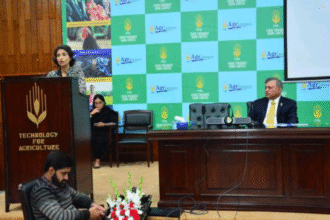Pakistan is currently going through a severe economic crisis. The prices of everyday essential items continue to rise, making even two meals a day a challenge for the common man. Recent reports from the federal capital Islamabad, the twin city Rawalpindi, and the provincial capital Peshawar paint a grim picture of this crisis and provide further evidence of state apathy. In these cities, the price of a single roti (flatbread) has reached 40 rupees, while naan has exceeded 50 rupees.
This unfortunate situation is the result of multiple factors, chief among them the continuous rise in flour prices, drastic increases in gas and electricity tariffs, and administrative failure. The Central Nanbai Association (Bakers’ Association) has clearly stated that the hike in gas prices has become an unbearable burden, leaving them with no option but to increase their prices.
This situation not only raises serious questions about the government’s economic policies, but it also shows that public welfare is currently not a priority at any policymaking level. When a basic necessity like bread becomes unaffordable for the average person, what greater example could there be of state weakness?
Simultaneously, another alarming issue has surfaced, the unregulated rise in the price of ice. In Islamabad, Rawalpindi, and Peshawar, ice is not only being sold at exorbitant rates but also without proper weighing. Ice, which is a basic necessity in the summer months, is becoming a rare commodity. Consumers have no idea of the quantity they’re receiving, and there is no visible government oversight. As a result, vendors are charging arbitrary prices, and the public, powerless, is forced to endure.
This situation should serve as a wakeup call for government institutions and administrative bodies. The inflation stricken public is already suffering under the weight of unemployment, income uncertainty, and heavy taxation. In such times, when even basic essentials like bread and ice begin to feel like luxuries, it is a clear warning sign for any functioning state.
The government must take immediate and serious notice of this crisis. First and foremost, effective measures should be taken to control the prices of food items. A fair pricing formula should be negotiated with the Nanbai Association so that they do not incur losses, but the public is also not overburdened. Subsidies on gas and electricity must also be considered, particularly for sectors directly linked to public welfare.
Furthermore, local administrations, price control committees, and consumer courts should be activated to monitor the prices and weights of items like ice simple but essential. If any vendor is selling ice without weighing it or at unreasonable prices, strict action must be taken.
It must be remembered that the primary duty of a government is not just to launch mega projects or make grand announcements, but to ensure ease in the daily lives of ordinary citizens. If the state fails to provide even basic necessities like bread, the trust between the state and its citizens begins to erode leading to not just economic but also social and political consequences.
The purpose of this editorial is not just to criticize, but to draw attention of the government, opposition, bureaucracy, and civil society to this rising storm of inflation, profiteering, and administrative failure. The unbridled rise in the prices of bread and ice is not a minor issue; it is a stark indicator of how disconnected the state machinery has become from the fundamental aspects of public life.
In conclusion, we believe that if immediate action is not taken, the situation may deteriorate further. The government must move beyond mere rhetoric and provide real relief to the people, so that basic blessings like bread and water do not become distant dreams for them.





